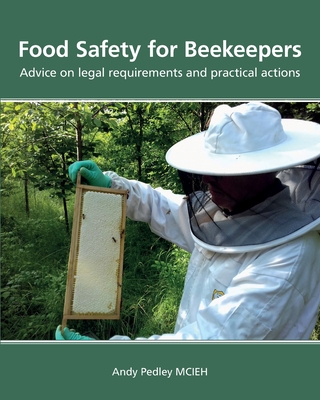Beekeepers are unusual, as their activity (which is often "just a hobby") is the production of food that may be sold to the public. Many will see the process through from the very beginning - making hives, sourcing bees, setting up apiaries, and managing the bees, right through all stages of harvest, processing, packing, labelling, to retail sale. Training is usually through local beekeeping associations, who often use a curriculum set by the British Beekeepers Association; this focuses on the practical sides of beekeeping, husbandry and the like, and it is intended to lead on to further study with Modules, and even the National Bee Diploma, the pinnacle of the possible qualification. The BBKA's Module 2 assessment includes food production and hygiene: the "bee press" occasionally have articles or a mention. There is little reliable guidance for beekeepers on the food production side, which is quite surprising. Although many beekeepers are hobbyists, with a few hives, and very limited sales, many have a number of hives. Of course, there are also bee farmers with many hives, producing significant quantities of honey and related products in commercial quantities. It's surprisingly easy to progress from a couple of hives to several, to having many! There are often enquiries on social media about honey, processing, or legal requirements. The sometimes less-than-expert responses often perpetuate old practices or information, which were not always correct to start with. For instance, I've seen it stated that in order to label honey with its botanical origin, it needs to contain variously 40% through to 70% of that nectar; but neither of these numbers is mentioned in the UK legislation. Another misrepresentation is that you don't need to register as a food business if premises are used for less than five days in five consecutive weeks: this is based on the Food Premises (Registration) Regulations 1991. However, these were superseded by Retained Regulation (EC) 852/2004, which contained no such exemption; there's full information in the relevant paragraph.














